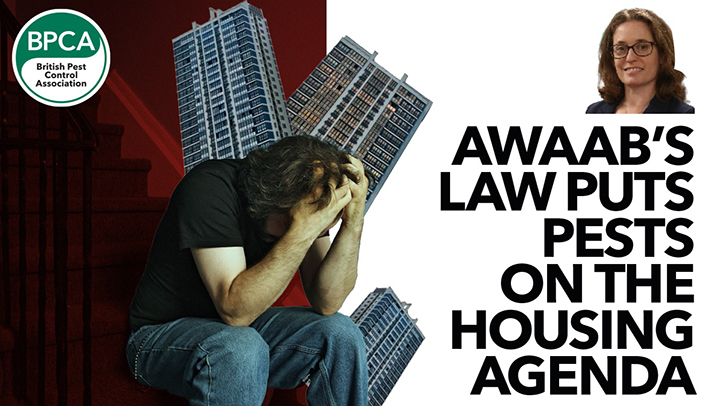The British Pest Control Association (BPCA) has issued guidance on how Awaab’s Law – part of the Social Housing (Regulation) Act 2023 – will impact pest management when new requirements come into force from 2026.
The law, introduced following the tragic death of two-year-old Awaab Ishak in 2020 from prolonged exposure to mould in social housing, places strict timeframes on landlords to fix hazards that pose risks to tenants’ health.
From October 2025, housing providers will be required to act swiftly on serious damp and mould. By 2026, the legislation expands to cover a wider range of hazards, including pest infestations defined under the Housing Health and Safety Rating System (HHSRS).
According to BPCA, this change means that landlords will have a legal duty to investigate and remedy pest problems promptly. Tenants will also gain new rights to escalate unresolved infestations, with the potential for enforcement or legal action if landlords fail to act.
Rosina Robson, BPCA chief executive, said: “We pushed hard to ensure that pests were explicitly recognised in Awaab’s Law. Infestations are not a minor inconvenience – they can spread disease, exacerbate health conditions and cause significant distress. Tenants deserve professional, timely treatment, not delays or DIY attempts.”
BPCA formally contributed to the government’s consultation on the law in 2024, calling for pest infestations to be listed as health hazards. The government’s published consultation summary now includes rodents and insects under “domestic hygiene, pests and refuse” as examples of hazards that require urgent attention.
What pest professionals need to know
Housing providers are already reviewing contracts and procedures ahead of the 2026 expansion.
Pest professionals can expect tighter service-level agreements, shorter response times, and more structured reporting.
BPCA recommends that contractors document all findings, treatments and follow-ups to help landlords demonstrate compliance.
The Association is urging members to raise awareness among housing clients now, provide training for housing officers, and offer preventative inspections and advice.
Failure to meet obligations could see landlords face regulatory enforcement, compensation claims or reputational damage. For pest management companies, poor communication or ineffective treatments risk harming professional relationships.
Ms Robson added: “This is a clear signal that infestations are recognised as a serious housing problem. Pest management is a public health service, and our industry has a vital role in helping landlords get it right.”
More information and BPCA’s full guidance can be found, by clicking here.


